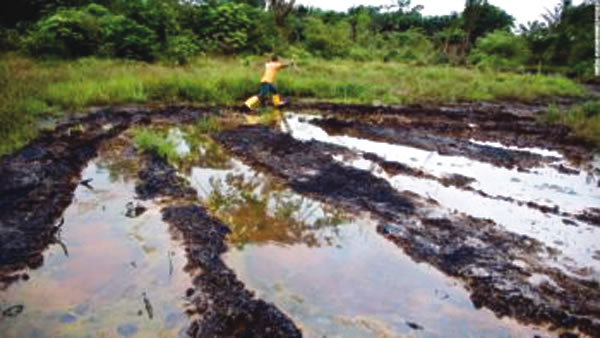Scholars from different parts of the world gathered at the Osun State University, Osun State, to discuss issues around global sustainable development, including pollution, global warming, overpopulation, ocean acidification, deforestation, ozone layer depletion, and others.
The gathering was the third International Sustainable Development Dialogue, titled, ‘Making and unmaking Africa: Global developments and environmental humanities,’ held to address the issues above.
The dialogue was organised by The Global Affairs and Sustainable Development Institute, UNIOSUN, The African Network of Environmental Humanities of Ludwig Maximillian University, Munich, Germany, and Rachel Carson Centre for Environment and Society.
Vice-Chancellor, UNIOSUN, Prof. Odunayo Adebooye, who was represented by the Deputy VC, Prof. Anthony Kola-Olusanya, assured the participants of its readiness to adopt any recommendation that would enhance the pursuit of corporate mandate of teaching, research and community service.
“We will also continue to open our doors for more collaborations geared towards providing solutions to any identified global and local challenges,” he said.
Dean, Faculty of Arts and Social Sciences, Nigerian Defence Academy, Kaduna, Prof Usman Tar, who gave the lead paper presentation, on ‘The crisis of sustainable development in Africa: Reflection on key issues, trends, and way forward,’ suggested that indigenous knowledge systems, traditional ecological practices, and local narratives about the environment could offer valuable insights into sustainable land management, resource conservation, and community resilience.
He added, “Furthermore, the arts and literature can play a transformative role by raising awareness, inspiring activism, and fostering a sense of connection and responsibility towards the natural world.”
On her part, Prof. Sophia Kalantzakos of the New York University and President, Rachel Carson Center Society of Fellows, said climate change would have catastrophic effects on food production. The professor of environmental studies called for the promotion of education on agriculture and infrastructure for food security, adding that it was very important to enhance agricultural practices in Africa.
Prof. Samuel Aghalino of the Department of History and International Studies,
University of Ilorin, in his presentation, titled, ‘Illicit refineries and environmental deterioration in the Niger Delta: policy options for sustainable environmental remediation,’ explained that It was important to emphasise that environmental remediation was purposefully more than just the removal of hydrocarbons from contaminated areas, saying it was about protecting people and the environment from the hazards of pollution.
“To achieve this, going by the current global trend in the selection of environmental remediation technologies, the application of bioremediation as a natural way of restoring the environment of the Niger Delta is imperative,” he explained.
Prof. Lanre Olaniyan, who is a former Director, Centre for Sustainable Development and Dean, Faculty of Economics and Management of University of Ibadan, harped on quality human capital development in terms of education and health.
He urged the government to provide jobs to the teeming population and parents to give birth responsibly.
On his part, Prof. Ian Boxil of the University of the West Indies, who spoke on the theme, ‘Global capitalism, climate change, and hegemonic shifts: Reframing the development discourse in Africa’, said good governance, solid control of resources and research and development were necessary to attain sustainable development.
Also, Director, GASDI, Prof. John Agbonifo, said the conference assembled scholars, traditionalists, practitioners, students, journalists, and activists from across the humanities, social sciences, and natural sciences to foster a rich and productive dialogue that enlightened the understanding of the complex relationships between humans and other-than-humans as a critical first step to devising innovative and effective strategies for addressing environmental challenges.








